5. Synecdoche, New York (2008, Charlie Kaufman)
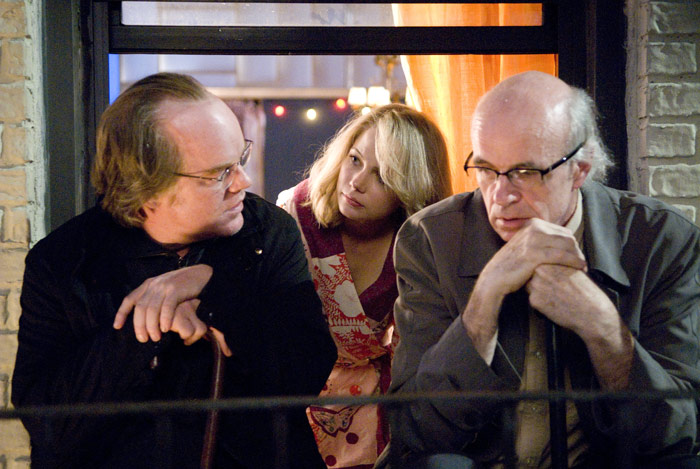
The late Philip Seymour Hoffman was a great actor and force of nature, and it is most evident in “Synecdoche, New York”. He plays an ailing theatre director who is making a new play, one that starts to blend fiction and reality.
Like Allen’s prototypical character, the aging man who battles a middle-age crisis, Hoffman’s Caden Cotard is building his magnum opus by casting actors to play people from his life, and then casting other actors to play those actors, and it starts the circle of absurdity that pushes against the limits of his personal and professional life.
The film is a postmodern drama that’s unusually funny, but it also sometimes feels like a horror movie. The main character is named after Cotard’s delusion, where the affected person believes he is dead. Cotard is trying to understand life (and death) with his play, and like Allen, who often jokes about matters of life and death, he believes fiction is probably the most important piece in understanding reality, and we can thank movies like this one for that.
4. La La Land (2016, Damien Chazelle)
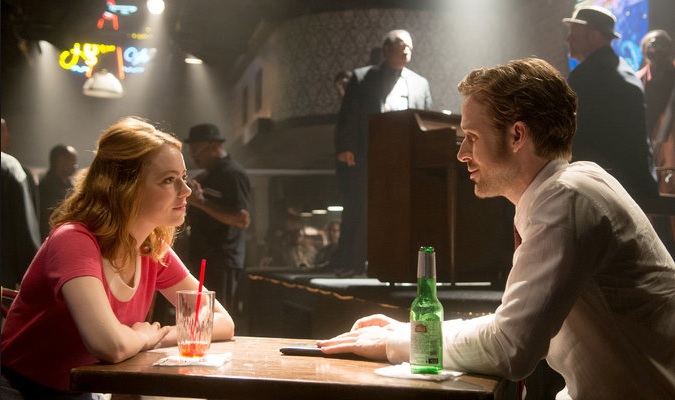
One of the most critically-acclaimed movies of 2016, which received backlash and famously lost the Best Picture Oscar this year, has a lot of things going against it: the songs are not that original, the chemistry between Emma Stone and Ryan Gosling is great but their singing and dancing abilities are somewhat questionable, the story is weak, and so on.
But this passion project from Damien Chazelle is one of the rare movies that honors old Hollywood musicals, and one that’s just a feel-good movie with catchy songs, and nothing more or less than that.
Like Allen, Chazelle is inspired by musicals like “Singin’ in the Rain” and “The Umbrellas of Cherbourg”. Allen has already made some musicals, like “Everyone Says I Love You” (1966), and is inspired by old Hollywood glamour and showbiz, like in “The Purple Rose of Cairo” (1985) and “Cafe Society” (2016).
When lots of modern movies think they need to be dark and gritty to better show the world of today, sometimes it’s nice to have a throwback to simpler times. Even if there probably isn’t anything like it in the world, and it’s as fake as people solving their problems through songs, it is still the magic of the movies that transports us to other places and allows us to dream.
3. The “Before” Trilogy (1995-2013, Richard Linklater)
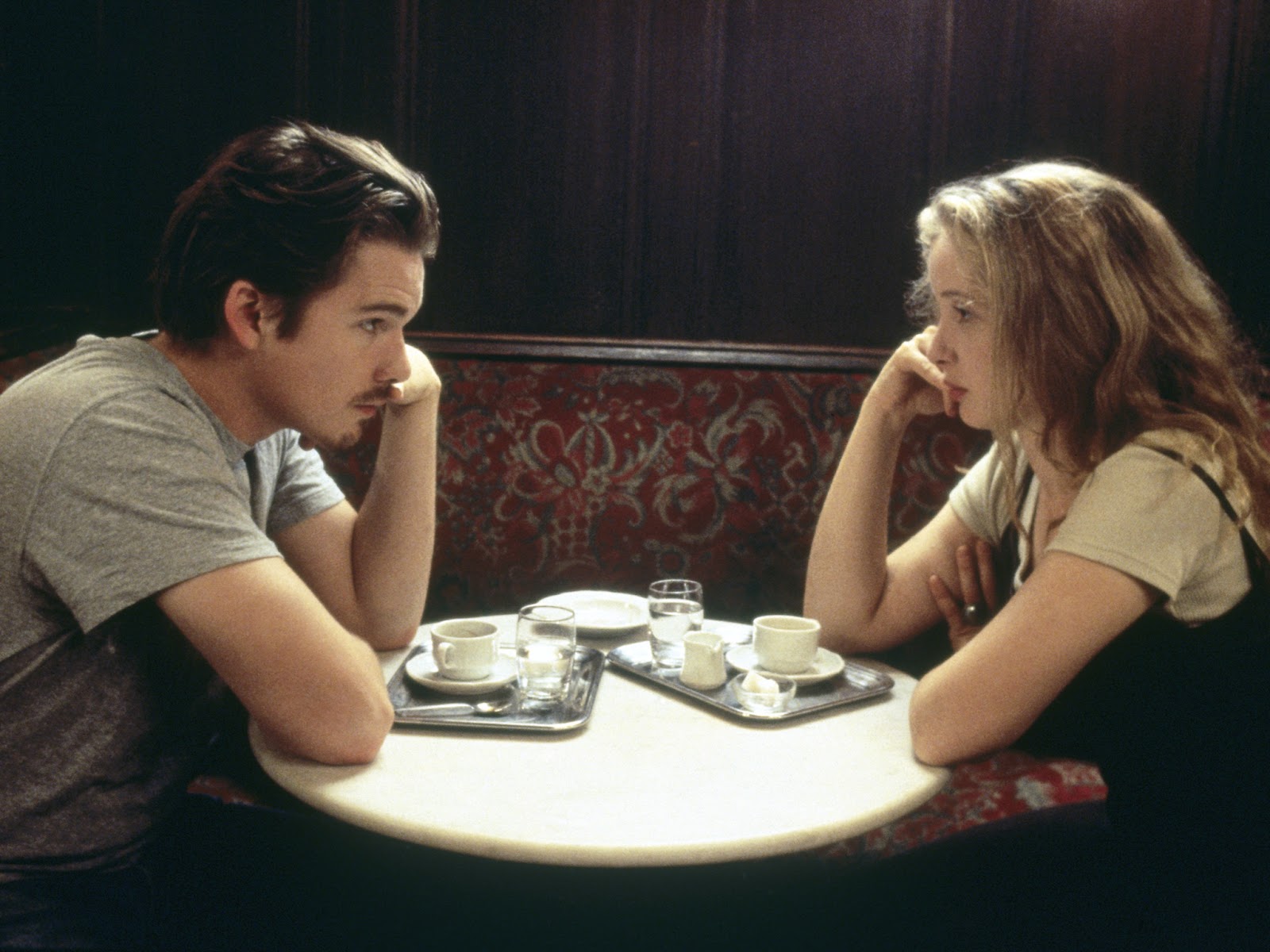
Richard Linklater’s magnum opus, the “Before” trilogy, is made of three movies: “Before Sunrise” (1995), “Before Sunset” (2004), and “Before Midnight” (2013). The story follows a young American man named Jesse who, while vacationing in Vienna, meets a French woman named Celine. The entire movie follows their initial meeting, and the day they spend together talking and walking through the city.
Like Allen’s films, the focus is not on the plot, and some could said that there isn’t one. But the real heart of the story is the dialogue and performances from Ethan Hawke and Julie Delpy. Since they are the only two characters in the film, the success is because of them.
Hawke is great at portraying a lost young man who’s searching for himself, and Delpy allows Celine to be a real character, not just a manic pixie dream girl who will change his life. Their conversations range from banal little pieces of life to deep truths about themselves. Their dialogue was mostly improvised, so in the sequels, Hawke and Delpy are credited as co-writers.
The second film follows them nine years later in Paris, and third one 18 years after the first one, in Greece. That allows for the range in Jesse and Celine’s lives to feel natural, as both the actors and characters grew older. Also, movies are filmed in amazing places throughout Europe, in Austria, France, and Greece – like later Allen’s movies set in Europe, “Vicky Christina Barcelona” and “Midnight In Paris”, among others.
We almost feel like Jesse and Celine are the only people in those beautiful cities and in the world, and we can really understand why those two people are connected to each other and stayed together for 18 years. We can only hope that we will revisit them again later in their lives, and see how they (and us) changed or stayed the same over the years.
2. The Royal Tenenbaums (2001, Wes Anderson)
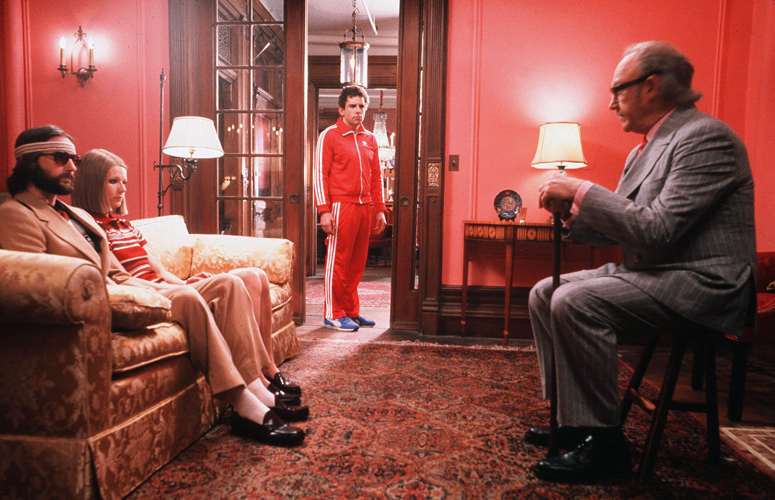
Wes Anderson’s quirky style of directing is at its best in “The Royal Tenenbaums”. From the first scene in any of his movies, you know exactly who’s in the director’s seat. With bright colors, unusual sets, and weird wardrobes that tell us lot about the characters before they even speak, his movies are definitely in the love-it-or-hate-it category. But “Tenenbaums”, behind all of its quirkiness, is about a deeply dysfunctional family – which is a theme well known to Woody Allen.
With cast full of A-listers like Danny Glover, Gene Hackman, Anjelica Huston, Bill Murray, Gwyneth Paltrow, Ben Stiller, and Luke and Owen Wilson, this cast is more than just a collection of eccentricities.
It’s set in New York in a time that could be the present, but also the past or the future, where the three Tenenbaum kids were celebrity child prodigies in their youth, but now they find it hard to live in lives full of disappointment, after their father left the family. It sounds like a serious drama, but the movie’s humor is subtle and ironic, and like in the best Woody Allen movies, this feature will make you laugh and then cry from scene to scene.
1. Frances Ha (2012, Noah Baumbach)
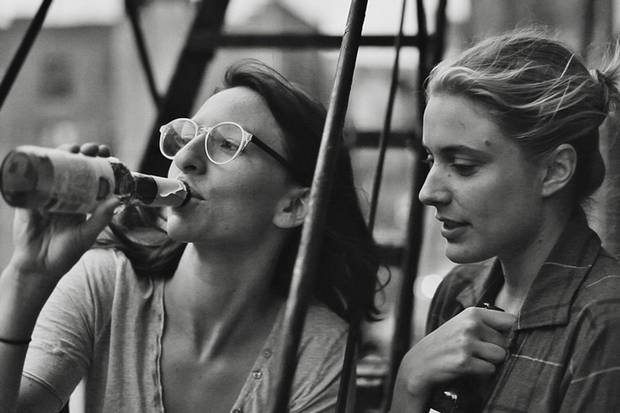
Noah Baumbach is an indie filmmaker who’s probably so influenced by Woody Allen that almost all of his movies could be on this list. But “Frances Ha” is his love letter to his influence, shot in black and white, set in New York, filled with a jazz score, and with a great leading lady; the similarities between “Frances Ha”, “Manhattan” and “Annie Hall” cannot be accidental.
“Frances Ha” follows a millennial woman named Frances played by indie darling Greta Gerwig, who, like most young people today, can’t find purpose in herself or in her life and is trying to make sense of it in a big city. She and her roommate Sophie are each other’s soulmates, and they are trying to have it all in New York, like they’d seen in a million movies, TV shows, and books about young people.
By doing that, they miss out on real-life experiences while they wait for their ‘real’ life to start, and after Sophie decides to grow up and follow her fiancee to Japan, Frances is left alone. She has to grow up and take responsibility for herself, which she fails to do over and over again, until she eventually succeeds.
What’s great is that Frances doesn’t find purpose in a job, her former friend with whom she reconciles, or a man, but rather herself, because she allowed herself to take responsibility for her actions. Growing up isn’t easy (and it is easier when you are a white, privileged character in one of Baumbach’s or Allen’s movies, set in a beautiful black-and-white jazz-scored New York), but it doesn’t mean that it can’t be fun learning experience.